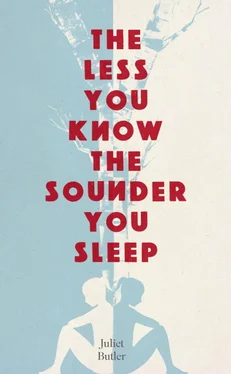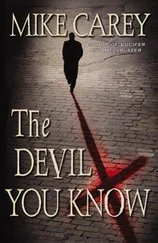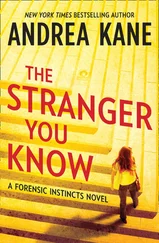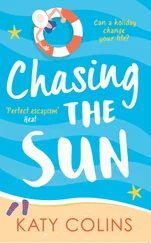Olessya shakes her head again. ‘They can’t even get them selves out, Dasha. They organized a breakout from the Homes and marched down to the Town Hall in protest a few years ago, remember? And what happened to them? They’re all in Stupino. Even a Madhouse is better than that…’
‘ Chort! You’re powerless, girls,’ says Sanya. She sits down on the bed next to us and looks at us as if we’re already dead and buried.
‘Anokhin?’ asks Olessya.
‘He died years ago,’ we say together.
Anokhin. He came to visit us, unannounced, here in the Twentieth, not long after Slava died. We weren’t expecting him, we were just sitting on our bed with our box of pipettes when we heard the tacks on the floor clicking and we looked up and saw him standing there, all shrivelled and crumpled in a suit. He didn’t stay for long. He sat down on our creaky chair and looked at us. We didn’t say anything. What were we supposed to say? So after a while he said, ‘I thought I’d come, girls, to see how you are… We had good times, didn’t we? You and I?’ Masha just glared at him, but I nodded, because I thought we ought to be polite. ‘Yes, yes, good times,’ he went on, shaking his head. Then he looked around our room for a bit, like there was a nasty smell somewhere, and got up. He put a hundred-rouble note (we’d never seen one before) on the bedside table. ‘Just for old times’ sake, girls. Buy yourself some chocolate,’ he said. And then he left.
Two months later Aunty Nadya came in with a copy of Pravda , dated 8 March 1974. There was this big photo of Anokhin above a headline: Pyotr Kuzmich Anokhin – Soviet medicine has suffered a great, irreparable loss . And then it went on for pages and pages about how he had won the Lenin Prize and was a Hero of the Soviet Union or something, and had studied under the great Doctor Pavlov and how wonderful and revered and wise he was. Masha tore it into strips, and we used it for toilet paper. No one needs heroes like that, she’d said.
‘He can’t help us from the grave,’ says Masha now.
‘He wouldn’t have h-helped us anyway,’ I add.
‘Then there’s only one thing more I can think of,’ says Olessya. We all turn and look at her.
We look for our mother
I tried to get Masha to look for our mother a few years after Slava died, once I’d stopped trying to kill myself and resigned myself to living instead. But Masha just kept saying she’d abandoned us, and if she didn’t need us, we didn’t need her. Masha’s proud like that. Or stubborn. So that was that. But now we do need her. We need her desperately.
‘OK, will you two stop pacing up and down like tigers,’ says Sanya. ‘You’re going to give me a heart attack just looking at you.’
We’re down in reception on a Sunday when no one from the Administration is around. There’s only Van Vanich, who’s outside sucking on a papirosa. Sanya’s going to call her up. Our mother. She’s going to call our actual mother up on the phone in reception.
‘It’s her doing the yobinny pacing, not me,’ says Masha angrily. ‘I’m the one who’s gonna get the heart attack.’ It’s true, I can’t stand still, my heart’s leaping around like a cat in a bag. Masha doesn’t get nervous like me, and she’s cross when I do, because she says it gives her palpitations. But I can’t help it.
Sanya was right, Aunty Nadya refused to go with us to Barkov to ask him to change his mind. She said it was probably for the best that we stayed here after it was re-profiled. For the best? In what world could it possibly be for the best? Neither of us could understand it at all. Sanya says Aunty Nadya often goes in for meetings with Barkov when she comes to visit. We never knew that. There was this one time when we were down in reception waiting for her and as she was coming in, he was walking out through reception, like a Tsar sweeping past the peasants. He’d stopped and talked to her though, by the door, and it was odd the way she stood there and smiled and nodded, wringing her hands. It’s the salt on a slug effect he has. She’s always done everything in her power to help us, and now she’s telling us he’s right. But as Olessya always says, ‘Obstacles are stepping stones to success.’ If Aunty Nadya hadn’t refused to help us, we wouldn’t be calling up our mother now. Masha would never have done it.
We had to bribe Katya in the Medical Room to look at our birth certificate and tell us which district we were born in, so Sanya would know where to look to find out where we were born in Moscow. (Aunty Nadya wouldn’t tell us. She’s doesn’t want us to find our mother either. Maybe she’s jealous?) It was Sokol District. Sanya looked up the name Krivoshlyapova and there was only one in Sokol. It’s such a rare name, she said, it’s virtually the only one in the whole of Moscow, so it must be her. It must .
‘So. You ready for this?’ says Sanya, picking up the receiver and looking over at us. Masha nods and Sanya starts dialling. We go and stand behind her.
‘Hello? Is this Yekaterina Alexeyevna? Yes? Krivoshlyapova?’ She nods across to us. ‘This is a cleaner at the Twentieth Home for Veterans of War and Labour. Did you give birth to twins who were born together thirty-eight years ago?’ There’s a long pause and then Sanya puts her hand over the receiver and mouths across to us, ‘She’s crying.’ Raising her voice, she shouts into the receiver. ‘They want you to visit them. This Wednesday. They live here at the Twentieth, number 12 Obrucheva Street… Yekaterina Alexeyevna? Hello?’ She pauses again and then puts the phone down. ‘She just kept crying,’ she says, looking up at us. I don’t know if she heard me. You’ll have to wait and see…’
We meet our mother
It’s Wednesday. We’ve been waiting all morning. It’s nearly 2 p.m. and no one’s come.
‘If she doesn’t come today, Mash, we’ll have to call again. She just didn’t hear, that’s all.’
‘She heard, all right. It’s easy enough to find the Twentieth without an address if you’ve got half a brain. If she doesn’t come, I’m not calling again. And that’s that.’
She has to come. We’ve washed our hair, put on clean shirts, scrubbed each other’s faces and combed each other’s hair. And now we’re sitting on the bed, looking at the door. Masha’s fiddling with her button. We don’t know anything about her. Is she still married to our father? Is she a doctor, like I imagined? Or does she work in a Ministry? Is she a member of the Communist Party? Why did she agree to come and see us if she abandoned us as babies? Does she feel guilty? Did she ever think of us? There are so many questions swirling in my head I can hardly breathe.
There’s a little tap on the door.
Two elderly women walk in. One of them is old and hunched, with her grey hair pulled back in a bun and tucked under a dark green headscarf. She’s wearing a shapeless woollen dress. The other one is younger and smarter and is holding a handkerchief over her nose. You don’t notice the smell in the Twentieth when you live with it. She has a little green beret on, and a grey suit. They stand there staring at us, and we sit there staring at them, not saying anything. Then the old one in the headscarf takes two steps towards us, bends down and kisses me softly on the cheek, and then she kisses Masha.
And it’s only then I realize that this is my mother. The mother I’d written all those undelivered letters to in SNIP. (Aunty Nadya finally told me she had just put them all in the bin. She had no idea if we had a mother or not, or where she might be.) This is the mother I imagined wearing a flower-print dress, with hair the colour of corn, and eyes as blue as the sky. The mother who was going to come to SNIP, take us in her arms and carry us back home.
Читать дальше
Конец ознакомительного отрывка
Купить книгу












